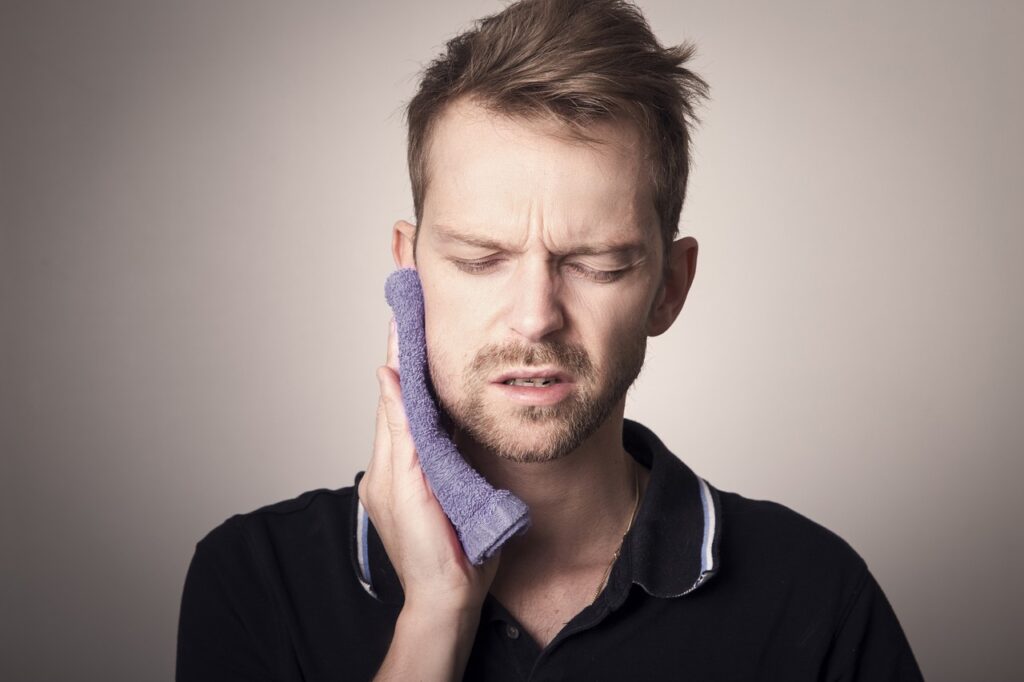Nitroglycerin is a type of nitrate that comes in a tablet form. It prevents and treats chest pain by relaxing your blood vessels. You should take this medication at the first sign of chest pain or tightness.
To take this medication, place one tabletunderneath your tongueand let it dissolve in your mouth. (Source)This scenario stresses the importance of tongue and why we should be very conscious in our eating and drinking habits.Now every morning we grab our toothbrush and brush our teeth with readily available chemical toothpaste. All we desire is a set of beautifully gleaming, pearly white teeth, yet what we often encounter is the trade-off between achieving that dazzling smile with chemical-laden toothpaste and the concern of introducing these substances into our bodies.
Next, You spend hundreds of dollars, rushing to the dentist, to protect your teeth.

Teeth, they say, are the windows to your personality and the face structure. These not only adorn your smile but also play a pivotal role in making you feel confident and charming. Your teeth are the very first things that greet the world when you speak, smile, or laugh. Their significance goes beyond aesthetics; they shape your personality and convey your confidence.
Why & Why Herbal
In childhood, we all were pushed by our parents to brush twice a day, with fluoride toothpaste, to keep the teeth brighter and healthier, weren’t we? And surely most of us followed this advice, thinking toothpaste fights bacteria, allowing us to maintain good gum health and those pearly whites we’re oh so proud of.
But here’s the catch: we were never informed that the chemicals present in toothpaste are also absorbed by our gums. These chemicals then spread throughout the rest of our body. Upon introspecting, we found brushing our teeth with these kinds of toothpaste similar to applying skincare or makeup with a chemical base.
Conventional Toothpaste does provide numerous benefits for your gums and teeth, but at a cost that is far more costlier than your future dentist bills.
Harmful Ingredients in Toothpaste to Avoid
Several harmful ingredients in toothpaste can do more harm than good for your pearly whites. One must be aware of which toothpaste ingredients to avoid so that next time you buy toothpaste at the pharmacy, you can choose a tube that promotes dental health rather than causing damage to your teeth.

- Fluoride
One of the most common ingredients found in many conventional toothpastes is Fluoride. Fluoride is the ionic form of the element fluorine, and it inhibits or reverses the initiation and progression of dental caries (tooth decay) and stimulates new bone formation. Approximately, about 95% of conventional toothpastes sold in the U.S. contain fluoride. Historically, marketers have always portrayed fluoride as beneficial for teeth, contributing to their whitening.
However, several researches have now shown the harmful effects of excessive fluoride consumption, which mostly comes from toothpaste. Excessive fluoride consumption causes Fluorosis (discolored spots on teeth), stomach problems, skin rashes, and impairment in glucose metabolism. (Source)
Young Children who are in the teeth-forming years swallow toothpaste rather than spitting it out and are at risk of suffering from fluorosis. According to the Centers for Disease Control and Prevention (CDC)Trusted Source, the teeth-forming years are before the age of 8.
Moreover, in a 2006 study by the US National Research Council of the National Academies, they found evidence that fluoride affects normal endocrine function. (Source) - Sodium Lauryl Sulphate (SLS)
According to the FDA, many consumer products incorporate SLS as an ingredient to prevent bacterial contamination, thicken toothpaste, and facilitate foaming during brushing. SLS is a common component found in toothpaste, cosmetics, and hair-cleaning products. The problem is that sodium Lauryl Sulphate is a potentially ulcer-causing chemical, and can cause skin irritation and can aggravate aphthous ulcers. (Source)
In a preliminary investigation conducted by dental scientists, patients who utilized toothpaste containing SLS, for three months experienced a notable increase in the occurrence of oral ulcers. Conversely, when these participants transitioned to toothpaste without SLS, there was a considerable reduction in the number of ulcers observed. (Source) - Propylene Glycol
Propylene Glycol, an extensively utilized humectant that maintains toothpaste moisture and enhances a product’s shelf life, appearance, and texture, has an industrial-grade form found in paint, solvents, and antifreeze. Excessive ingestion of propylene glycol has been associated with causing damage to the central nervous system, liver, and heart, according to the FDA (Source). It might be wise to avoid overconsumption by ensuring this ingredient is not in our everyday toothpaste routine(Source). - Triclosan
Triclosan, a commonly found antibacterial ingredient in toothpaste, acts as a pesticide. The FDA has banned its use in soap and body wash. A study endorsed by the FDA observed a reduction in certain thyroid hormones associated with triclosan. (Source). Nevertheless, comprehensive data regarding the implications of this study on human subjects is not yet available. Some studies link it to a decrease in thyroid hormones and antibiotic-resistant bacteria. Thyroid hormones help control your metabolism and keep it regulated. A decrease in such hormones could result in a slow metabolism.
Numerous investigations are underway to explore the potential correlation between triclosan, antibiotic resistance, and the risk of developing skin cancer. However, as of now, these studies remain inconclusive with no determined outcomes(Source). Given the uncertainty surrounding triclosan, it is advisable to steer clear of toothpaste containing this ingredient. - Diethanolamine (DEA)
DEA helps to create a smooth and uniform texture in toothpaste, and its foaming properties contribute to the perception of effective cleaning. Functioning as a hormone disruptor, diethanolamine (DEA) undergoes chemical reactions with other compounds, forming the potentially carcinogenic N-nitroso DEA. Known for its easy absorption through the skin, DEA has been associated with cancers affecting the esophagus, stomach, liver, and bladder. A 1998 study demonstrated a link between the application of DEA and cancer in animals (Source), also revealing its potential to induce hepatic choline deficiency. The Environmental Working Group (EWG) rates DEA at 10, signifying the highest concern on its scale. While companies may use DEA to adjust the pH levels of products, its associated risks outweigh its benefits. Consequently, experts strongly discourage the inclusion of DEA in consumer products, including toothpaste. - Carrageenan
Derived from seaweed, carrageenan is a common thickening agent in toothpaste – both conventional and natural. It can also be found in foods like chocolate milk, yogurt, and cream. It’s been linked to gastrointestinal inflammation, ulcers, and even colon cancer in laboratory animals. While food-grade carrageenan sounds safe, it’s also been linked to insulin resistance and glucose intolerance in mice. (Source) - Parabens
Despite their widespread use in cosmetics and beauty products, dentists warn of their potential health risks. This is why holistic dentistry centers around the natural protection of teeth and the oral microbiome when dealing with dental hygiene products. Studies indicate that parabens may heighten the risk of specific illnesses, such as cancer, endocrine disruption, and reproductive toxicity. In line with a holistic approach to health, practitioners in holistic dentistry advise steering clear of products containing parabens whenever feasible. This recommendation aims to safeguard both dental well-being and overall health from potential adverse effects associated with these substances. - Artificial Sweeteners
Inconsistencies and conflicting findings mark the current body of research on the effects of artificial sweeteners, such as saccharin and aspartame. While historical links between saccharin and health issues like bladder cancer, brain tumors, and lymphoma exist, conclusive evidence supporting these claims is presently lacking. Conversely, studies indicate that aspartame may influence gut bacteria and raise blood glucose levels, associating it with insulin resistance. (Source)
Closing the Case: A Definitive Summary
Numerous brands incorporate harmful ingredients in toothpastes that raise concerns about their safety. The cumulative impact of using toothpaste containing questionable ingredients could potentially harm our health. This concern extends to children as well.

Fortunately, there is a variety of natural products that offer effective cleaning without the use of potentially harmful ingredients in toothpaste. When selecting toothpaste, it’s advisable to scrutinize labels and opt for products that exclusively feature safe ingredients.